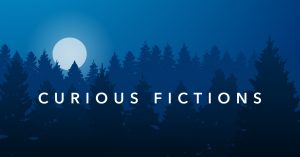I sometimes find action scenes a bit of a challenge, in part because I’ve written so many of them now it’s sometimes tough to find a new way of approaching them. No matter what genre you work in or style of writing you employ, there will always be aspects of storytelling that begin to feel a bit rote over time, and for me writing about people attacking each other, shooting at each other, and chasing each other has become so prevalent in my work I can sleepwalk through those sequences.
I hopefully don’t need to state that sleepwalking through your own writing process is never a good idea.
Keeping things fresh means trying new things, both in terms of choreography and technical approach. When writing an action scene I always work out the rough choreography first—nothing too detailed, and nothing formal or written down. I just like to start with two basics: Where is everyone in the beginning of the scene, and where do I want them to be at the end of it (the answer is usually 50% “dead,” btw)?
Then, once I have those basics in my brain, I keep it simple.
KISS
There’s always a temptation to make your action scenes kind of crazy, with a bit of the old ultraviolence and all that. The same temptation occurs in action films, and you can probably think of a few movies where the action is so frenetic and insane that your suspension of disbelief goes right out the window. That can happen in your writing, too; sure, your character might be a badass, but is she really capable of being shot three times and thrown out the window only to come racing back into the fray? Can anyone actually fight off fifteen people at once?
Sure, if you Keep It Simple, Stupid.
I like to steal a trick from action films to keep things streamlined: Space out your enemies. In the real world, if fifteen thugs come at you, they’re going to swarm you and the fight’s over in no time. In movies, you might notice that when the hero faces fifteen opponents they come at him one at a time while the others stand around tentatively, looking menacing but not, you know, actually attacking. Keeping things simple by dicing your action scene into smaller, easily manageable bits like that is one way to keep things clear in your own head, which will also keep things clear on the page.
Next, steal a trick from writers who know what they’re doing. Read some Elmore Leonard or Lee Child and see how they render action scenes: Briefly, with an economy of words to convey both the action and the way the hero triumphs. They don’t pour thousands of words describing the roundhouse kicks and the precise holds and martial arts moves employed. They use simple action verbs, keep things moving briskly, and trust your minds eye to fill in the rest. In other words, they keep it simple.
Of course, I’ve lost every fistfight I’ve ever been in. It’s one reason I’m a writer instead of a mercenary.
 Hey all—I was invited to join Curious Fictions, which is a site where authors post their (previously published) short stories. The stories are free to read, but you are also free to subscribe to an author (say, me!) for a few bucks a month. Sort of like Patreon, but without the constant updating, and limited to published stories.
Hey all—I was invited to join Curious Fictions, which is a site where authors post their (previously published) short stories. The stories are free to read, but you are also free to subscribe to an author (say, me!) for a few bucks a month. Sort of like Patreon, but without the constant updating, and limited to published stories.








